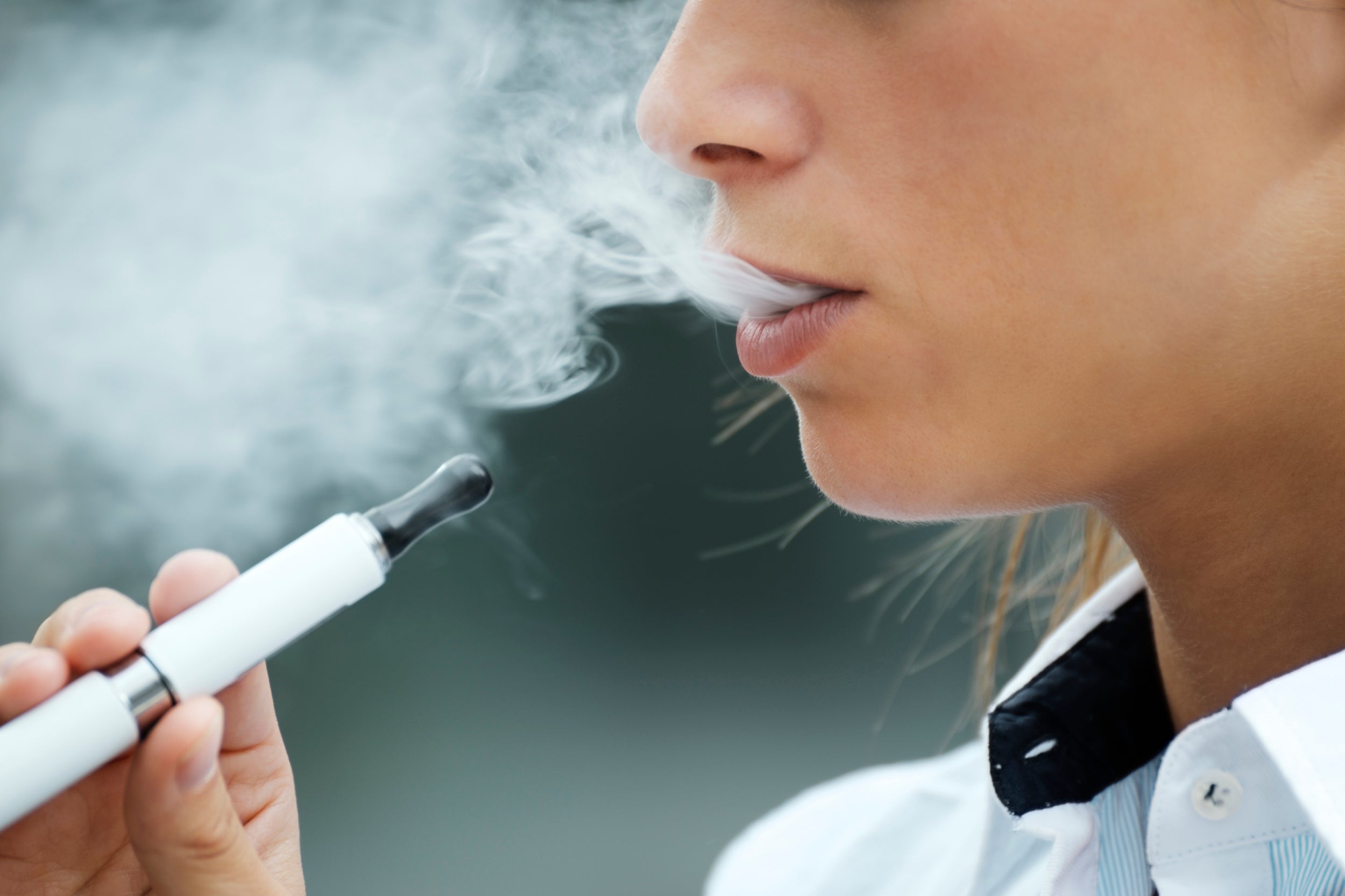Vaping makes young people up to seven times more likely to get coronavirus, study finds
‘Teens and young adults need to know that if you use e-cigarettes, you are likely at immediate risk of Covid-19 because you are damaging your lungs,’ researcher says

Your support helps us to tell the story
From reproductive rights to climate change to Big Tech, The Independent is on the ground when the story is developing. Whether it's investigating the financials of Elon Musk's pro-Trump PAC or producing our latest documentary, 'The A Word', which shines a light on the American women fighting for reproductive rights, we know how important it is to parse out the facts from the messaging.
At such a critical moment in US history, we need reporters on the ground. Your donation allows us to keep sending journalists to speak to both sides of the story.
The Independent is trusted by Americans across the entire political spectrum. And unlike many other quality news outlets, we choose not to lock Americans out of our reporting and analysis with paywalls. We believe quality journalism should be available to everyone, paid for by those who can afford it.
Your support makes all the difference.Young people who use e-cigarettes are five to seven times more likely than non-smokers to be infected with coronavirus, a study suggests.
Vaping also appears to diminish the protections afforded by youth against the symptoms of the virus, warned scientists who analysed data from across the US.
“Teens and young adults need to know that if you use e-cigarettes, you are likely at immediate risk of Covid-19 because you are damaging your lungs,” said the study’s senior author Bonnie Halpern-Felsher, professor of paediatrics at the Stanford University School of Medicine.
Researchers analysed survey responses from 4,351 people aged between 13 and 24 from across every US state. Participants were asked in May whether they had ever used e-cigarettes or conventional cigarettes and if they had vaped or smoked in the last 30 days. They also answered questions about whether they had suffered coronavirus symptoms and been tested for or diagnosed with the disease.
Among people tested for Covid-19, those who had used e-cigarettes at any time in the past were five times more likely to receive a positive result than those who had not, the study found. That figure rose to 6.8 times more likely among respondents who had used both e-cigarettes and tobacco in the previous month.
“Young people may believe their age protects them from contracting the virus or that they will not experience symptoms of Covid-19, but the data show this isn’t true among those who vape,” said postdoctoral researcher Shivani Mathur Gaiha, co-lead author of the research.
She added: “This study tells us pretty clearly that youth who are using vapes or are dual-using are at elevated risk, and it’s not just a small increase in risk; it’s a big one.”
Young people who had both vaped and smoked in the previous 30 days were almost five times more likely than non-smokers to suffer Covid-19 symptoms, such as coughing, fever, tiredness and difficulty breathing, the data showed.
The results were adjusted to account for factors such as age, sex, ethnicity, body mass index, local coronavirus rates, and compliance with lockdown restrictions.
Previous research has indicated smoking tobacco increases the risk of patients falling seriously ill with coronavirus. The disease primarily attacks the lungs, whose function is impaired by regular cigarette use.
Vaping is widely believed to be less damaging to health than cigarettes, and the NHS advises that e-cigarettes can be “an effective aid” to permanently quitting smoking.
But there is evidence e-cigarette use impairs lungs’ ability to fight off infections, and academics have cautioned it is too early to say if vaping inflicts less long-term damage than smoking.
“When someone’s lungs are exposed to flu or other infections the adverse effects of smoking or vaping are much more serious than among people who do not smoke or vape,” wrote Stanton Glantz, a professor of medicine at the Centre of Tobacco Control Research and Education, in a blog post in May.
Researchers at the University of Tasmania wrote in the European Respiratory Journal last month that there was evidence “all electronic nicotine-delivery systems may put users at greater risk of succumbing to coronavirus”.
Consumer Advocates for Smoke Free Alternatives Association, a lobby group for the vaping industry, has previously argued there is “no compelling evidence” e-cigarettes put users at greater risk from Covid-19 and suggested vapers’ history of conventional smoking could making them more vulnerable.
But the Stanford researchers said their findings should prompt the Food and Drug Administration (FDA) to tighten regulations governing how vaping products are sold to young people.
“Now is the time,” Dr Halpern-Felsher said. “We need the FDA to hurry up and regulate these products. And we need to tell everyone: If you are a vaper, you are putting yourself at risk for Covid-19 and other lung diseases.”
Join our commenting forum
Join thought-provoking conversations, follow other Independent readers and see their replies
Comments